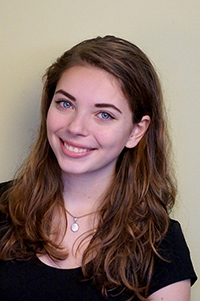Although the mystery of how the brain works and grows is a massive puzzle to figure out, the hope is that piece by piece, we can start to work towards a better understanding.
A person’s (or fly’s) sense of smell, or their olfactory system, is one of these pieces.
Though olfaction may not be the first part of the nervous system to cross someone’s mind when it comes to how we understand the brain, it is actually one of the most complex and diverse systems of an organism, and there’s a lot to understand within it, says Pelin Volkan, an assistant professor of biology and neurobiology and investigator in the Duke Institute for Brain Sciences.

Volkan and her lab have been working with fruit flies to try to unfold the many layers of the olfactory system, or the, “giant hairball,” as Volkan calls it.
Though she has been doing this work for years, she didn’t begin with an interest in neuroscience. Volkan was more interested in genetics in college and didn’t really start exploring neurobiology and development until her master’s degree at a Turkish university, when she worked with rats.
Not keen on working with rodents as model organisms but sticking with them anyway, she moved from Turkey to UNC to get her PhD, where she strayed away from neuroscience into molecular biology and development. Eventually, she realized she had a stronger passion for neuroscience, and ended up doing a postdoc at a Howard Hughes Medical Institute lab at UCLA for six years.
There, she became interested in receptors and neuronal wiring in the brain, propelling her to come to Duke and continue research on the brain’s connections and development.
One of the main reasons she loves working with the olfactory system is the many different scientific approaches that can be used to study it. Bouncing between using genetics, evolution, development, molecular biology,and other areas of study to understand the brain, her work is never static and she can take a more interdisciplinary approach to neuroscience where she is able to explore all the topics that interest her.
Volkan says she has never had to settle on just one topic, and new questions are always arising that take her in directions she didn’t expect, which is what makes her current work particularly enjoyable for her.
“You have your stories, you close your stories, but then new questions come into play,” Volkan says. “And you have no choice but to follow those questions, so you just keep on going.”
And isn’t that what science is all about?

Guest Post by Angelina Katsanis, NCSSM 2019
